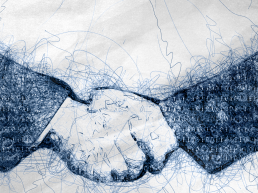Oversight Cooperation
Discussion Prompt: Why don’t intelligence oversight bodies cooperate as well as intelligence agencies? And is there reason to believe that could be changing?
A series of terror attacks, most notably 9/11 and the 2015 Paris attacks, has led to an ever-closer cooperation among European intelligence agencies. The bodies tasked with monitoring these agencies, however, rarely engage in direct cooperation, let alone conduct joint investigations into intelligence cooperation. This discrepancy engenders an oversight gap, whereby intelligence data and activity eludes nationally mandated review as it crosses national borders. Simply speaking, transnational intelligence practice and national oversight have historically been an accountability mismatch, which in turn undermines the democratic legitimacy of intelligence agencies and their work. This discussion question interrogates why oversight bodies don’t have similarly extensive international relationships and what the likely trajectory is for intelligence oversight in an increasingly transnational security context.
A global look at oversight cooperation
NGOs from around the world compare their countries’ experiences with intelligence sharing.
A simple yet existential demand: let oversight bodies work together
A veteran’s perspective on European intelligence oversight: where it’s been, where it’s going, and why we need to internationalise it.
Enhance & internationalise the oversight mandate
Intelligence oversight needs stronger regulatory support to effectively monitor increasingly international intelligence practice.



